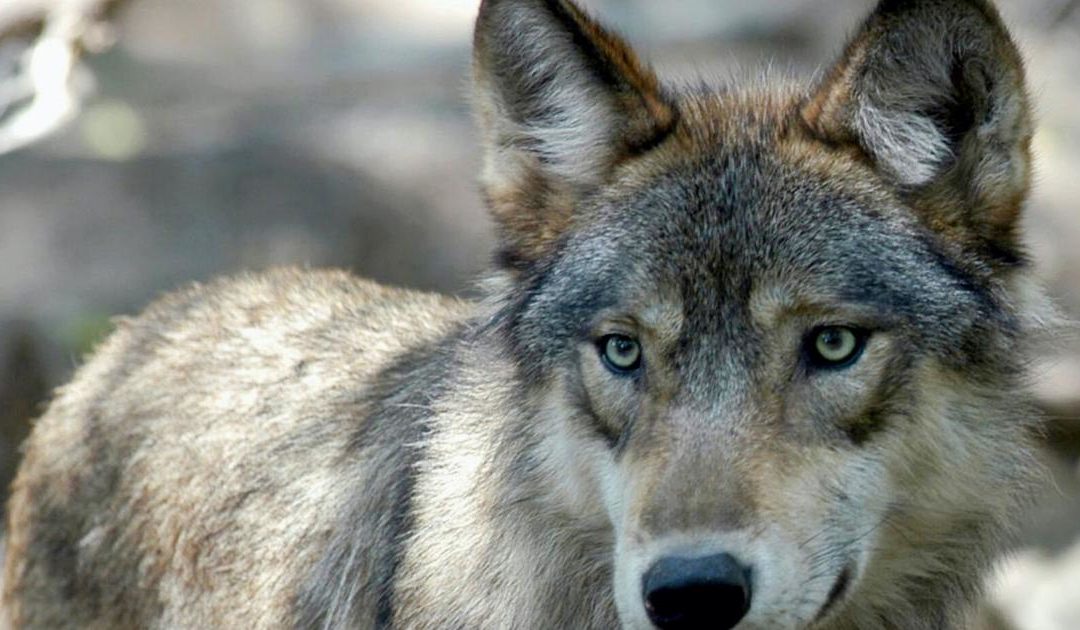State wildlife officials on Tuesday confirmed the first killing of livestock by a pack of wolves in more than 70 years.
Colorado Parks and Wildlife said officers on Sunday investigated reports of a calf killed by wolves on a ranch in Jackson County.
“The results of this investigation indicated wolf tracks in the immediate vicinity of the carcass and wounds on the calf consistent with wolf depredation,” CPW Area Wildlife Manager Kris Middledorf said in a statement.
The Colorado Cattlemen’s Association, which first reported the incident, said the pack killed and ate a 500-pound purebred heifer near Walden in Jackson County. The young heifer belonged to a producer with a small herd, according to the association’s executive vice president, Terry Fankhauser. In the last several weeks, the producer saw tracks from the pack on his property, including near his house, Fankhauser told Colorado Politics.
In June, a mating pair with at least six pups was spotted in Jackson County, according to CPW.
The state agency said it will handle reimbursement under its current game damage process.
“CPW is working on draft regulations for the commission’s consideration on hazing for these naturally migrating wolves in the state,” CPW Director Dan Prenzlow said in a statement. “Our goal is to provide producers with resources to minimize the likelihood of conflict or depredation as we work to create a statewide wolf restoration and management program as directed under Proposition 114.”
Colorado voters along the Front Range approved the reintroduction of gray wolves on the 2020 ballot, despite objections from ranchers and rural Coloradans that wolves are a threat to livestock. Proposition 114 called for reintroducing between 20 and 30 wolves to the Western Slope by 2023.
The measure, which passed 50.9% to 49.1%, succeeded largely because of support from voters in urban, Democratic-leaning counties where wolves would not be reintroduced. In the northern Colorado counties where wolves would be reintroduced (Jackson, Moffat, Rio Blanco and Routt), the measure failed by a nearly 3-to-1 margin.
The Cattlemen’s Association was among the most vigorous opponents of Proposition 114. Ranchers and hunters opposed the measure, citing concerns for the safety of livestock and big game, specifically elk and deer. One study opponents cited found that, in five states where wolves have been reintroduced, they killed 158 cattle and 218 sheep in 2015 alone.
Backers of Proposition 114, however, said in 2020 that wolves can coexist with ranchers.
Rob Edward, president of the Rocky Mountain Wolf Action Fund, told Colorado Politics that science said “it is possible for working ranches to coexist with wolves as part of the landscape. Science tells us that returning wolves can help restore balance to Colorado’s wild places. Colorado is excited to show the rest of the West what it looks like to welcome wolves home with open arms. Future generations expect us to get this right.”
In March, Rio Blanco County commissioners passed a resolution declaring Rio Blanco a “Wolf Reintroduction Sanctuary County.” Under the resolution, “artificial” reintroduction of wolves would not be allowed. The resolution added that they should only be reintroduced in counties that supported the measure. Five Western Slope counties voted in favor of Proposition 114: La Plata, San Miguel, Pitkin, Summit and San Juan.
In other counties, the resolution stated, wolves should be introduced by natural migration and repopulation only.
Just after the November 2020 election, the Trump administration removed gray wolves from the endangered species list. The Biden administration is defending that decision in a lawsuit filed by Defenders of Wildlife, WildEarth Guardians and the Natural Resources Defense Council. A hearing on the lawsuit took place on Nov. 12 in the U.S. District Court for the Northern District of California, and a ruling is expected soon.
Once the gray wolf was delisted at the federal level, species management became the responsibility of tribes and states, according to Colorado Parks and Wildlife. In Colorado, the gray wolf is a state endangered species, and, under state law, killing wolves can result in fines of up $100,000, jail time or or loss of hunting privileges. Proposition 114 also contains a requirement that ranchers be compensated when wolves kill their livestock.
Colorado Parks and Wildlife are tasked with coming up with a management plan for reintroduction by 2023, under Proposition 114.
The Cattlemen’s Association said in a statement that the livestock kill “brings to light issues that must be addressed by the Wolf Restoration and Management Plan, specifically:
The association said it “strongly encourages the members of the Wolf Restoration and Management Plan working groups and the Colorado Parks and Wildlife Commission to consider this wolf attack and the widespread impacts as a sentinel example of how livestock can be impacted by wolf introduction.”
This content was originally published here.

